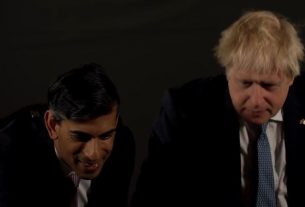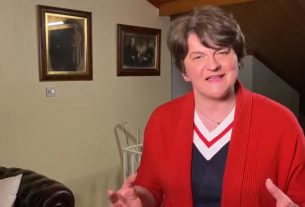If news rumours are anything to go by, the growing Tory revolt may soon have Truss out the door. The economic ripples of the mini-budget have not only created market chaos but also alarmed the IMF. At a meeting today, the Chancellor will seek to reassure their representatives while the PM staves off the rebellion at home. On top of that, new data indicates that a recession is on the cards.
Since taking the reins at the helm of the Conservative Party, Truss has had little cause for triumph. The unfunded tax cuts have plunged the pound into steep decline and overall, the mini-budget has earned little else apart from concern and dismay. According to Sky News, a growing number of MPs are pressuring the PM to reverse more of the policies introduced last month to put an end to the market tumult. Treasury Select Committee chair, Mel Stride said:
“It might be the case that anything other than some level of U-turn might still not leave [the markets] with quite enough confidence in [Mr Kwarteng’s] plans.”
Many Tories have openly criticised Truss and Kwarteng. David Davis called the mini-budget a “max shambles” and, according to Damian Green, Conservative MPs are looking at ways to scrap some of the measures in parliament. Truss’ meeting with the 1922 Committee yesterday saw MP, Robert Halfon, accusing the PM of “trashing workers’ conservatism” and “everything the party has stood for over the last decade”. When asked how many MPs now feel about Ms Truss, one MP said that their heads were now “in their hands”. The PM has been described as “delusional” for laying the blame solely on Vladimir Putin and urging colleagues to give her government some credit.
According to reports, MPs do not want another Tory leadership race. But the Tory revolt could see over 40 MPs vote with Labour thus forcing an election and facing a wipeout, which some feel may be better for the long-term future of the Conservatives.
On a more positive note for the PM, John Barton MP, who attended the 1922 Committee meeting told reporters that announcing tax cuts without first calming markets may have been “naive”, but he insisted that Truss and Kwarteng had “taken this on board”. He also said that he expects “better times ahead” and that he hoped the PM would listen to Tory backbenchers.
He declined to engage in a discussion about ousting the PM, instead insisting:
“There is time to turn this around, if we are calm about it and get the messaging right.
“So there is time, but there isn’t time to waste.
“That’s a message the government have received loud and clear in recent days.”
Kwarteng meets IMF representatives
The Chancellor is in Washington DC today to meet with IMF leaders. Its chief economist said that the recent tax cuts may cause “problems” for the UK. The IMF advised the UK government to prioritize tackling inflation rather than exacerbating the problem with tax cuts in an effort to boost economic growth. The IMF said that the mini-budget measures had made it more difficult for the Bank of England to battle inflation.
At the presentation of the IMF’s world economic outlook (WEO), the fund castigated the UK government for the scale of the tax cuts as well as the introduction of the price cap on electricity and gas bills:
“The fiscal package is expected to lift growth somewhat above the forecast in the near term while complicating the fight against inflation.”
Market turmoil in the aftermath of the mini-budget announcements forced the Bank of England to introduce emergency measures aimed at preventing a run on pension funds. Noting the hostile market reaction, the WEO said:
“Without fiscal contraction elsewhere, and with tight supply, unfunded government spending increases or tax cuts will only push inflation up further and make monetary policymakers’ jobs harder.”
On the energy and gas bill cap, the organisation said:
“The sizeable energy package announced by the UK government, aimed at assisting all families and businesses dealing with high energy prices, has scope for better targeting the vulnerable, which would lower the cost of the package and better preserve incentives to save energy.”
Overall, the IMF has expressed concerns at the UK’s new economic approach saying that at a time of high inflation, the government should steer clear of introducing large and unfunded stimulus packages.
On Tuesdays, the Chancellor said that the IMF had adjusted upwards its growth predictions for the UK economy following the mini-budget. He is expected to seek to reassure the fund at a meeting in Washington today.
Kwarteng announced on Monday that his economic plan would now be published alongside Office for the Budget Responsibility forecasts on 31 October instead of 23 November. He told reporters that the statement would be “upbeat” but would show an “iron commitment to fiscal responsibility”.




